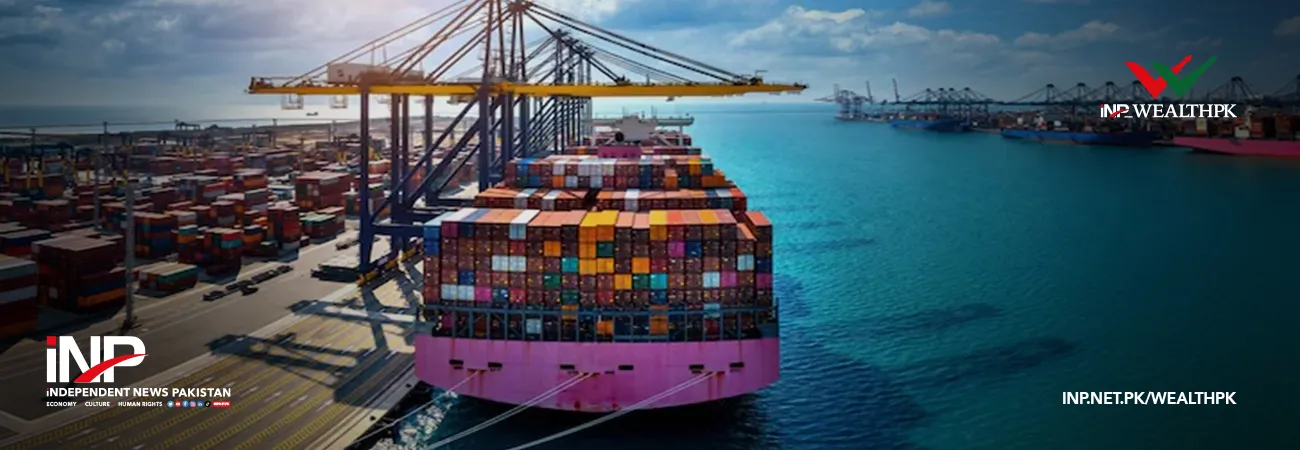آئی این پی ویلتھ پی کے
Amir Saeed
Multiple factors, including a skilled workforce, cost advantages, a thriving startup ecosystem and supportive government policies, are driving Pakistan's digital export growth.

Talking to WealthPK, Ahad Nazir, Associate Research Fellow at Sustainable Development Policy Institute (SDPI), highlighted that the country’s IT sector is experiencing a remarkable transformation, positioning itself as a significant player in global digital exports. “With a population exceeding 241 million, the country boasts a large pool of IT professionals, with around 20,000 to 25,000 graduates entering the workforce annually.
This influx of talent is complemented by competitive labour costs, making the country an attractive destination for outsourcing IT services. The average salary for software developers is considerably lower than in neighbouring countries, further incentivising foreign companies to engage with Pakistani firms,” he explained.
Pakistan's information technology and IT-enabled services (ITeS) exports, which include computer services and call centre operations, experienced a significant growth of 32% during the first five months of the fiscal year 2024-25 (July-November), reaching $1.530 billion compared to $1.152 billion in the same period of the previous fiscal year. Official data indicates that in November 2024, the country's IT export remittances rose by about 25% year-on-year, totalling $324 million, up from $259 million in November 2023.
However, on a month-on-month basis, there was a slight decline of around 2%, as the remittances were $330 million in October 2024. Nazir further highlighted that the growth of the startup ecosystem is another pivotal factor. “Cities like Karachi, Lahore, and Islamabad have become hubs for innovation and entrepreneurship. In 2023 alone, tech startups attracted investments totalling $75.8 million, reflecting a vibrant entrepreneurial spirit.
Additionally, internet penetration has risen significantly, reaching approximately 45.7% in 2024, which enhances connectivity and access to global markets.” The SDPI associate research fellow added that the country’s competitive advantages extend beyond its workforce and cost structure. “The country offers a diverse range of IT services, including software development, mobile app development, and IT consulting.” “Government initiatives have played a crucial role in fostering this growth.
The Pakistan Software Export Board actively promotes the IT industry by providing marketing support and capacity-building initiatives. Moreover, the Digital Pakistan Initiative aims to transform the country into a knowledge economy by enhancing digital infrastructure and promoting IT education,” Nazir explained. However, he said that despite these advancements, challenges remain. “Political uncertainty can deter foreign investments and disrupt operations.
Additionally, while improvements are underway, infrastructure issues such as inconsistent electric supply and internet disruptions continue to pose risks to service delivery. Brain drain also threatens local talent availability as skilled professionals seek better opportunities abroad.” “Conversely, opportunities abound for Pakistan's IT sector. The rising global demand for IT services presents substantial growth potential for local companies.
The Covid-19 pandemic has accelerated remote work acceptance, allowing Pakistani firms to tap into international markets more easily,” he noted. “Collaborations with foreign companies seeking outsourcing solutions can leverage Pakistan's skilled workforce and cost advantages,” he said. Talking to WealthPK, Jahanzaib Shafi, Manager of International Marketing at Pakistan Software Export Board (PSEB), provides insights into the competitive advantages of Pakistan's IT sector, particularly regarding outsourcing.
He added that the country offers a diverse range of IT services, including software and mobile app development, which cater to various client needs. “The government has introduced several initiatives to promote IT exports, such as tax exemptions for IT companies and startups.” He highlighted how these measures have led to a surge in ICT export remittances, which increased by 24% in FY24, reaching $3.223 billion, the highest-ever for Pakistan's ICT industry.
“A significant factor contributing to this growth is the recent increase in the permissible retention limit for IT exporters, raised from 35% to 50% of their export proceeds in Exporters’ Specialised Foreign Currency Accounts (ESFCAs).” “This adjustment allows IT exporters to retain more of their earnings within the country, enhancing their liquidity and encouraging reinvestment into their businesses.
Additionally, the State Bank of Pakistan has streamlined processes for freelancers and companies alike, enabling them to make payments from these accounts without prior approval, thus facilitating smoother operations and further boosting the sector's potential for sustainable growth,” Shafi said.
Credit: INP-WealthPk












